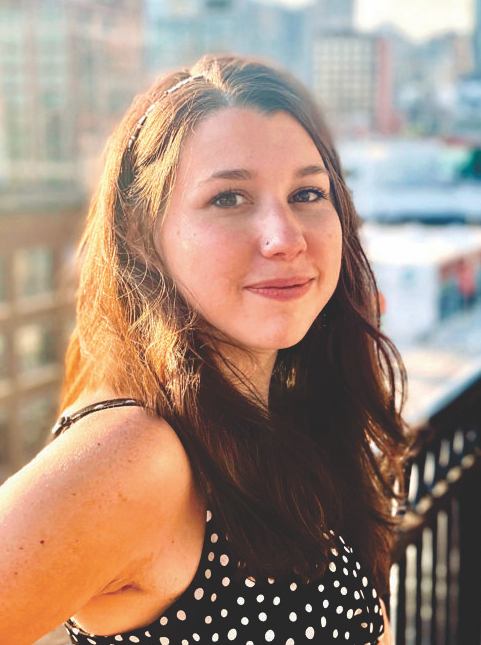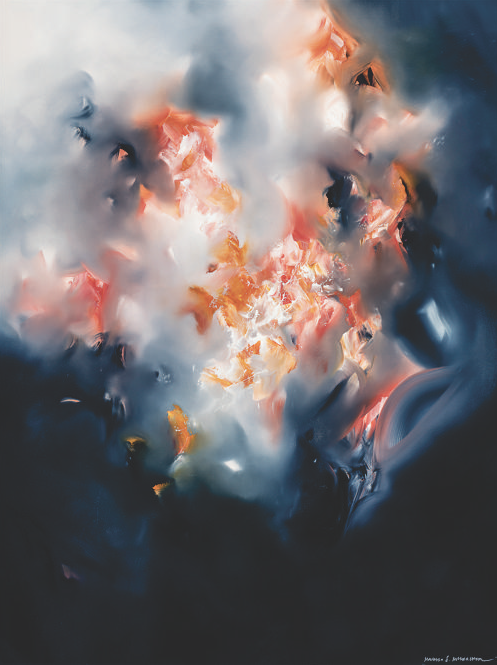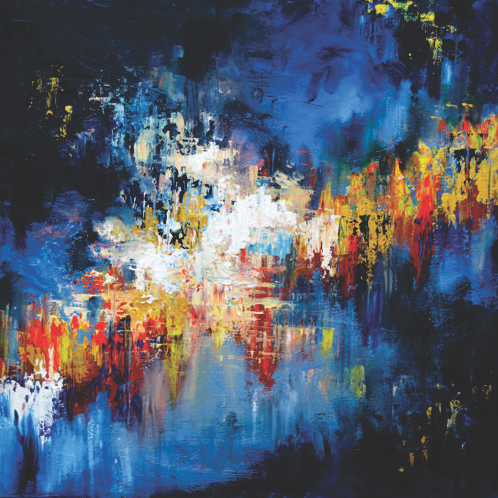 Imagine interpreting the world in a certain way and assuming that everyone else has the same interpretation – that all music is not only heard by the ears, but it is also associated with colors in the brain at the same time. No two pieces of music have the same color adaptation, and the colors can be turned into images for each piece of music. Now, let’s assume that asking a dinner partner if their perceived color for “Gravity” by John Mayer is indeed vibrant red, white, and yellow on a blue background. The bill might come rather quickly for said meal. Such is the world of a person who experiences synesthesia.
Imagine interpreting the world in a certain way and assuming that everyone else has the same interpretation – that all music is not only heard by the ears, but it is also associated with colors in the brain at the same time. No two pieces of music have the same color adaptation, and the colors can be turned into images for each piece of music. Now, let’s assume that asking a dinner partner if their perceived color for “Gravity” by John Mayer is indeed vibrant red, white, and yellow on a blue background. The bill might come rather quickly for said meal. Such is the world of a person who experiences synesthesia.
According to webmd.com, synesthesia is described as follows, “Synesthesia is a neurological condition in which stimulation of one sensory or cognitive pathway (for example, hearing) leads to automatic, involuntary experiences in a second sensory or cognitive pathway (such as vision). Simply put, when one sense is activated, another unrelated sense is activated at the same time. This may, for instance, take the form of hearing music and simultaneously sensing the sound as swirls or patterns of color.”
As Artist Melissa McCracken described it, “As a synesthete, I utilize my unique ability to see colors in the sounds I hear. Many of my paintings incorporate vibrant colors and lively textures to depict the movement of music.” As a teenager, it was shocking to discover that other people didn’t perceive things the same way she did, and her frustration with trying to explain it all eventually led to her deciding to paint her vision so that people could see it for themselves. The results are stunning.
To describe her work, Melissa said, “I believe that we too often view the world through a singular and narrow lens, only allowing our habitual and empirical experiences to inform our perspective. Through my work, I hope to widen that lens, even if it is at the smallest degree. By incorporating elements of synesthesia, I create a visualization of music. My hope is to transcend traditional interpretations of experience and to reimagine the familiar. Intended to feel elusive, I invite the viewer to envision the potential of each piece in their own regard, thereby making the final product one of collective consciousness.”
As a Kansas City native, Melissa’s education includes a bachelor’s degree in psychology from William Jewell College, and post-graduate work in the arts, specifically painting. Essentially, though, all of her work is a direct translation of what she hears. Not choosing one specific type of music, her paintings range from works from Bach to John Lennon to Nine Inch Nails. And, while the music is vastly different, the pieces she creates all have an ethereal quality, not unlike some of the recently released Webb Telescope photos (at least according to the author!). At times they feel “other worldly” and at times there are floral impressions. There are feelings of movement, and her images are always loaded with color. The beauty of her work is that she gives the world what she sees and hears and feels, and we can then have our own impressions of what we see and feel.

La Mer (Nine Inch Nails)
Starting with Gravity, the painting shows a white flash in the middle of the field with a diagonal red and yellow trail on either side, all placed on top of a shades-of-blue background. The lyrics start with: Gravity is working against me/And gravity wants to bring me down/Oh I’ll never know what makes this man/With all the love that his heart can stand/Dream of ways to throw it all away. Possibly the white flash is the pull of the gravity and the extension of colors is an attempt to keep floating? Looking at Cello Suite No. 1, there appears to be an upward push of a variety of colors set upon a darker background. Listening to the piece, it is possible to feel the waves and the flow of the music and imagine the building of color and sound.

Gravity (John Mayer)
While we cannot even pretend to be able to interpret Melissa’s version of what she is communicating, it is not only possible, but imperative that we try to use all of our senses in our own interpretations. The idea that each piece of art is multi-sensory should be the building blocks of all art education. Her attempt to get us to listen to her art is commendable and glorious. The practice of viewing the piece while listening to the accompanying music is delightful, and often ethereal – just as her works appear. Who knows, maybe we can hear something she is communicating, too?
Featured in the September 17, 2022 issue of The Independent.
By Anne Potter Russ